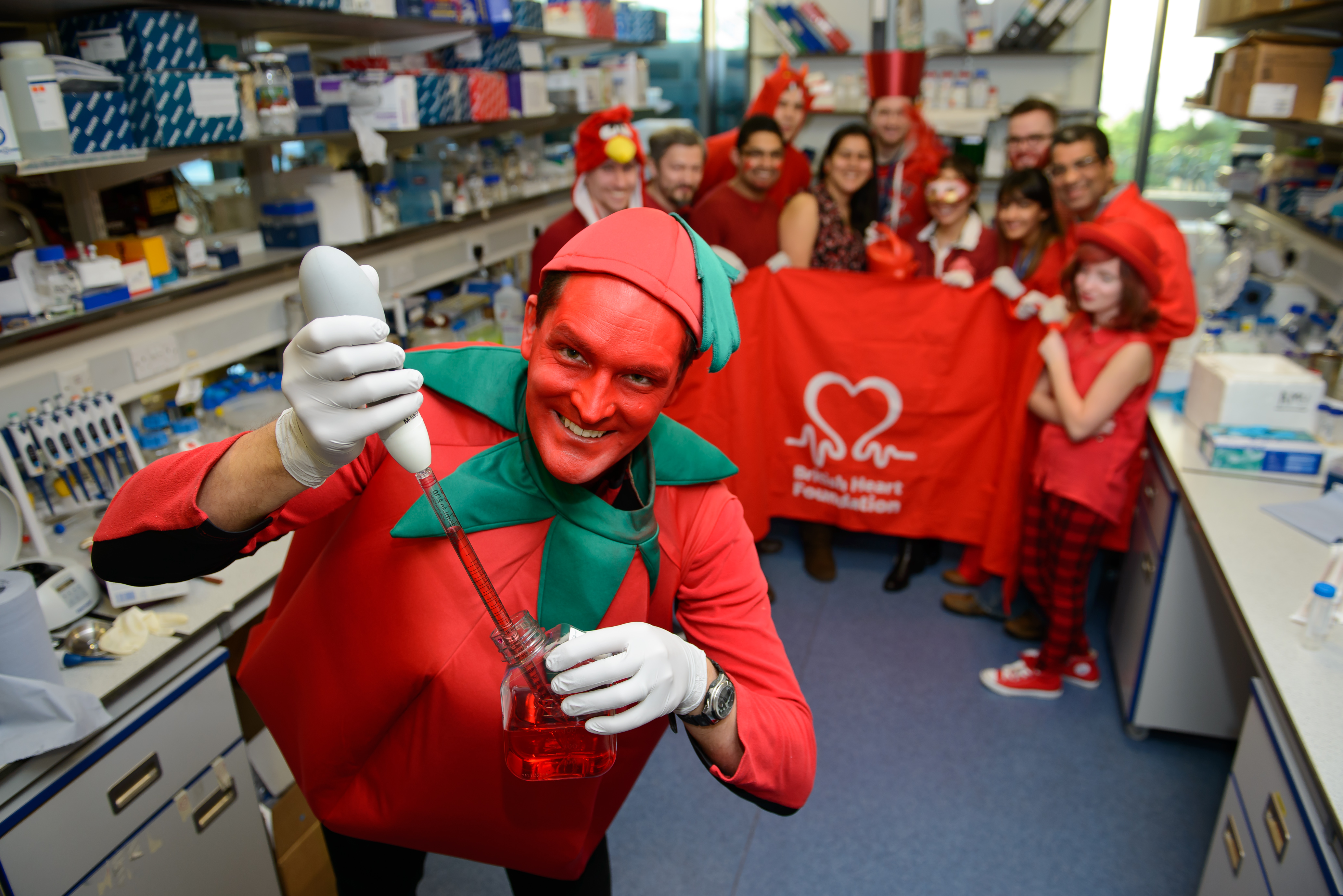
January 15, 2014, by Emma Thorne
Ramping up the Red for heart disease research
Professor Chris Denning must have attracted some startled looks as he turned up for work at his lab in the Centre for Biomolecular Sciences earlier this week. After all, it’s not every day you see a Professor of Stem Cell Biology dressed as a giant tomato is it?
Reassuringly, it was all for a fine cause, with Prof Denning and his team swapping standard issue white lab coats for some outrageous red fancy dress to show their support for an upcoming charity event.
On Friday February 7 the British Heart Foundation (BHF) will be inviting people to ‘Ramp up the Red’ to raise money to fund pioneering research to end the suffering caused by heart disease.
Professor Denning, whose team is funded by the BHF, said: “I’m dressed as a giant tomato and ramping up the red so the BHF can continue to fund the vital work in our lab in Nottingham. Thanks to the research they’ve funded thousands of lives have been saved, and the quality of life for heart patients has greatly improved.
“But the fight against heart disease isn’t over. Whether you just put on a pair of red socks, or go head-to-toe in red, the money you raise is crucial to beat heart disease.”
Ramp up the Red will fund essential research which could create a better future for so many people affected by coronary heart disease (CHD), the UK’s single biggest killer.
Professor Denning’s BHF-supported research is centred on developing new drugs for patients with Long QT Syndrome, a condition that disrupts the normal rhythm of the heart, leading to fainting, seizures, cardiac arrest and sudden death. Preventative treatments include the use of beta-blockers and, in some cases, surgery is required to place an implantable cardioverter defibrillator into the chest of the patient; this device can restart the heart of a patient experiencing an episode of sudden cardiac death. Unfortunately, beta-blockers do not always work for LQTS or the patients cannot tolerate being on these drugs long-term. Similarly, the surgical options are invasive and not always suitable for young patients.
The Nottingham team is using a new lab-based technology called ‘induced pluripotency’ to test drugs for LQTS. Using donated skin biopsies from LQTS patients they are employing genetic trickery to convert skin cells into stem cells and then coax the stem cells into becoming heart cells. When they do this from healthy people, the stem cell-derived heart cells beat normally but the cells from an LQTS patient develop arrthymias. With a few drugs, they have shown that arrhythmias can be prevented. Now they plan to make stem cell-derived heart cells from different LQTS patients and test a much larger range of drugs in the lab to see which ones work the best.
This lab-based approach could be used to specifically tailor treatments for each patient with the aim of being able to provide more effective medication with fewer side effects.
You could support this and many other vital research projects aimed at ending the suffering of heart disease by Ramping up the Red on Friday February 7. To order your FREE fundraising pack, visit bhf.org.uk/red or call 0800 0316 316.
- Professor Denning and his team in their lab in the Centre for Biomolecular Sciences.
- Research Fellow Asha Patel, centre, with PhD student, Marcelo Alves Maia, left, and senior experimental officer Jayson Bispham.
- Professor Denning’s team are supporting the British Heart Foundation, which funds their work into heart disease.
- Professor Denning dressed in his red fancy dress to promote Ramp up the Red.
- Raising awareness for the British Heart Foundation.
No comments yet, fill out a comment to be the first

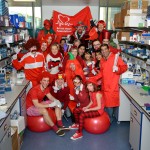
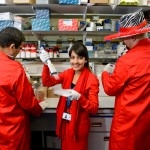
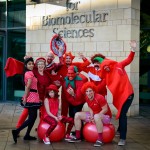
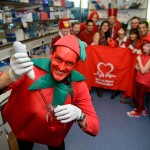

Leave a Reply